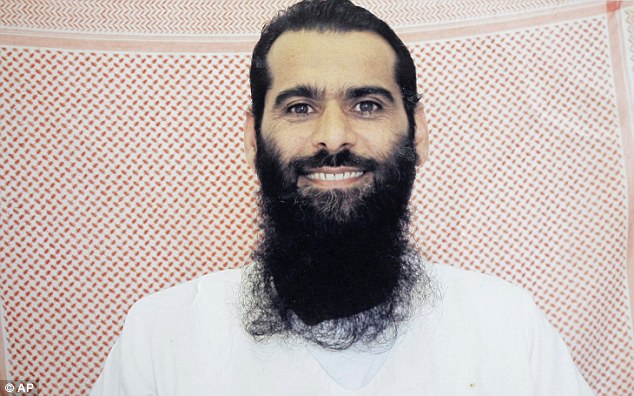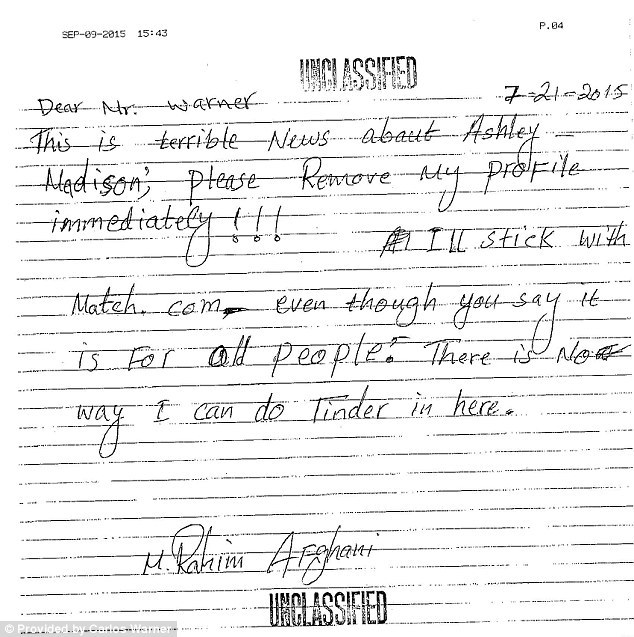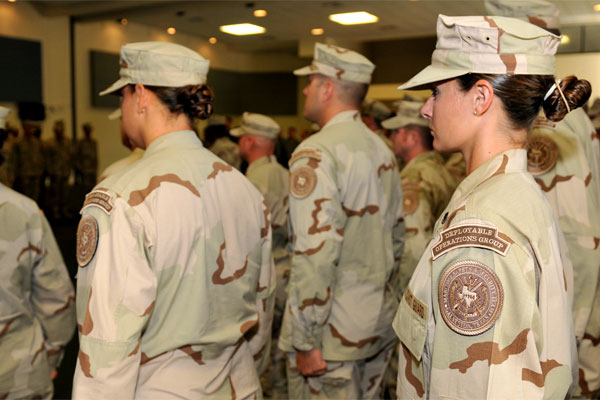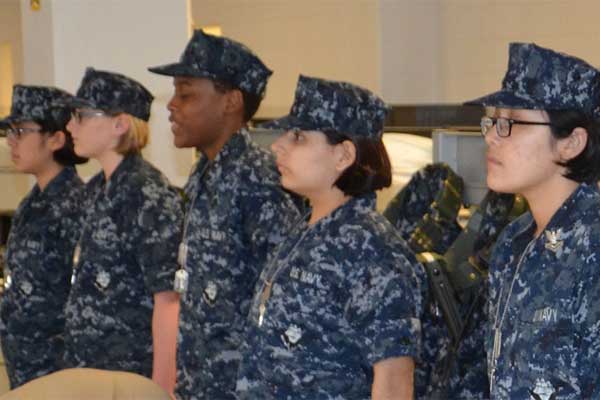Anyone here looking for a date? Sounds like a fun guy.
Guantanamo prisoner accused of being Osama bin Laden's associate has a DATING PROFILE on Match.com which says he is 'detained but ready to mingle'
By MIA DE GRAAF FOR DAILYMAIL.COM
PUBLISHED: 21:55 EST, 14 September 2015 | UPDATED: 00:14 EST, 15 September 2015
A Guantanamo Bay prisoner has an online dating profile.
Muhammad Rahim al-Afghani is looking for love on Match.com from the confines of his prison camp, where he has been held since 2007.
According to his lawyer Carlos Warner, who monitors the account, al-Afghani set up the profile in 2012.
With the location set to 'Guantanamo Bay', his tag line reads, 'detained but ready to mingle' - and he gets matches every day.

+10
This is Muhammad Rahim al-Afghani's Match.com profile picture. His lawyer runs his account, with the tag line 'detained but ready to mingle', as he remains in Guantanamo Bay. He has been in Camp 7 since 2007

+10
'I'll stick with Match.com': Al-Afghani jokes about the Ashley Madison hack in this letter.
Read more:
Guantanamo prisoner has a DATING PROFILE on Match.com
Follow us: @MailOnline on Twitter | DailyMail on Facebook
Guantanamo prisoner accused of being Osama bin Laden's associate has a DATING PROFILE on Match.com which says he is 'detained but ready to mingle'
- Muhammad Rahim al-Afghani has been detained by the CIA since 2007
- He is accused of having been a close associate of Osama bin Laden
- Letters to lawyer reveal he has a Match.com profile, opted against Tinder
- He also writes animatedly about his respect for Caitlyn Jenner
By MIA DE GRAAF FOR DAILYMAIL.COM
PUBLISHED: 21:55 EST, 14 September 2015 | UPDATED: 00:14 EST, 15 September 2015
A Guantanamo Bay prisoner has an online dating profile.
Muhammad Rahim al-Afghani is looking for love on Match.com from the confines of his prison camp, where he has been held since 2007.
According to his lawyer Carlos Warner, who monitors the account, al-Afghani set up the profile in 2012.
With the location set to 'Guantanamo Bay', his tag line reads, 'detained but ready to mingle' - and he gets matches every day.

+10
This is Muhammad Rahim al-Afghani's Match.com profile picture. His lawyer runs his account, with the tag line 'detained but ready to mingle', as he remains in Guantanamo Bay. He has been in Camp 7 since 2007

+10
'I'll stick with Match.com': Al-Afghani jokes about the Ashley Madison hack in this letter.
Read more:
Guantanamo prisoner has a DATING PROFILE on Match.com
Follow us: @MailOnline on Twitter | DailyMail on Facebook


